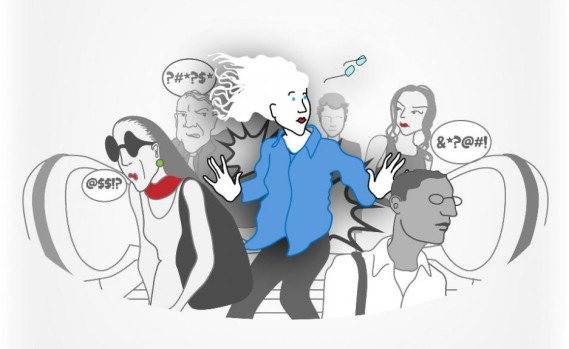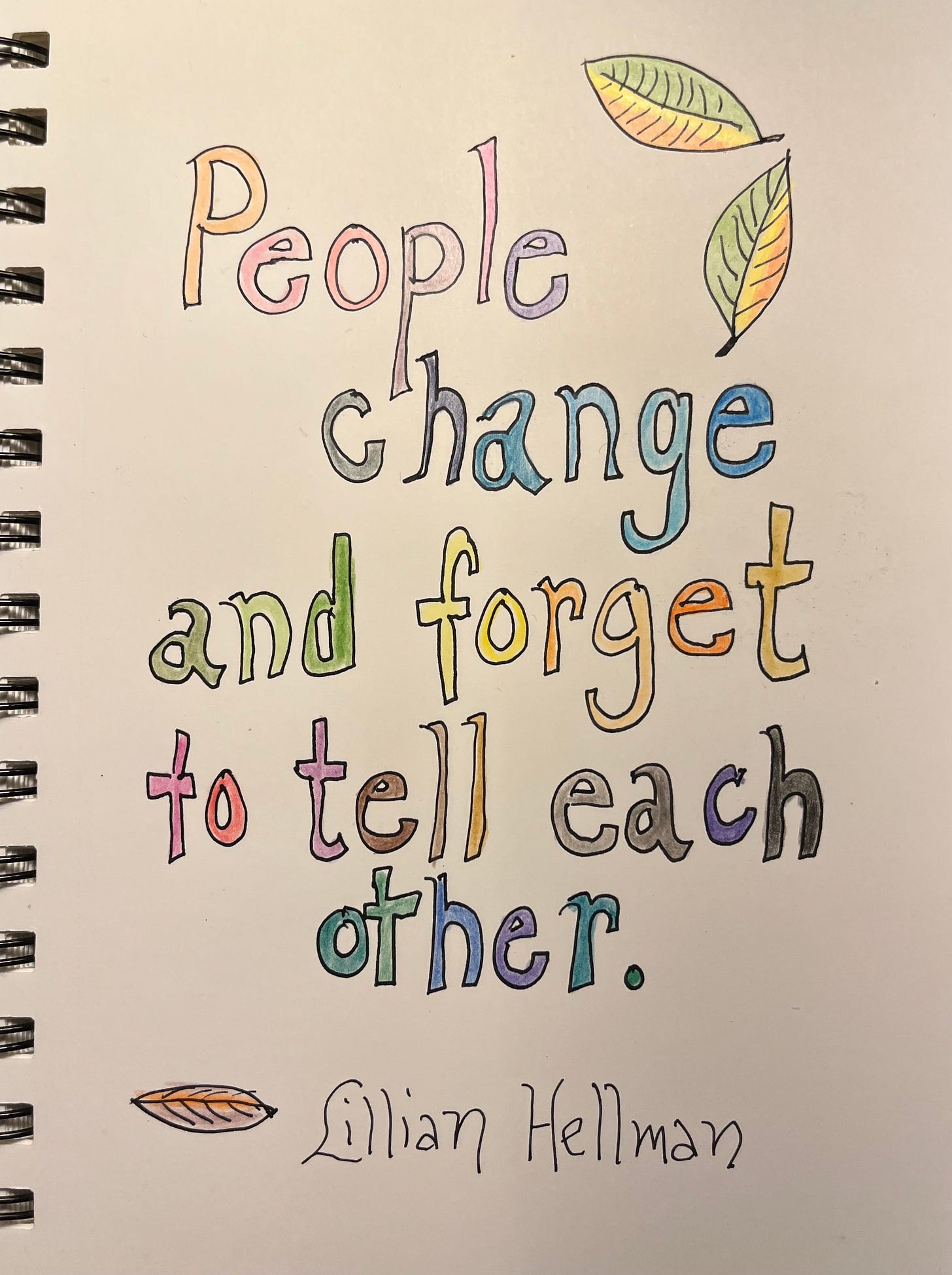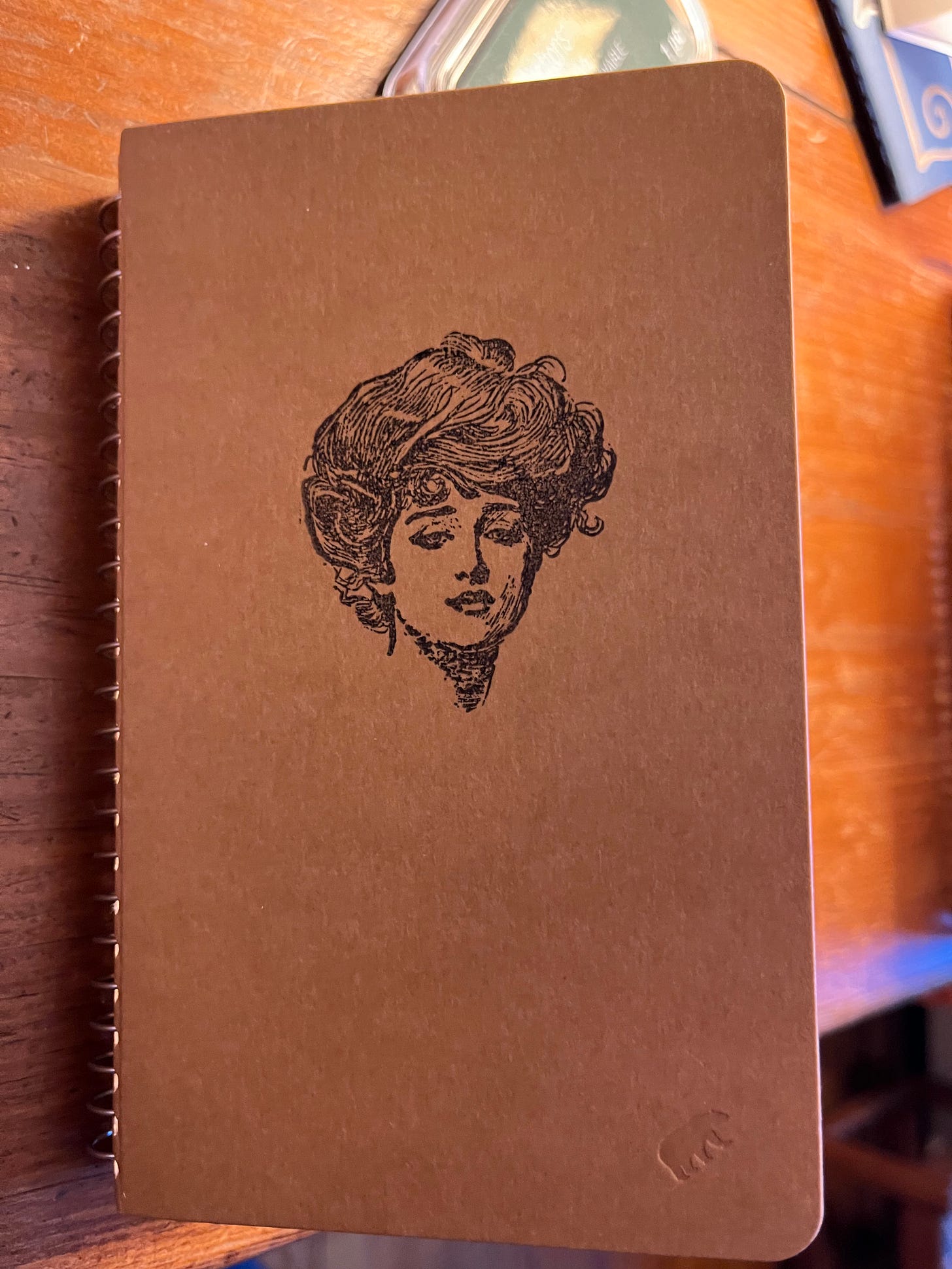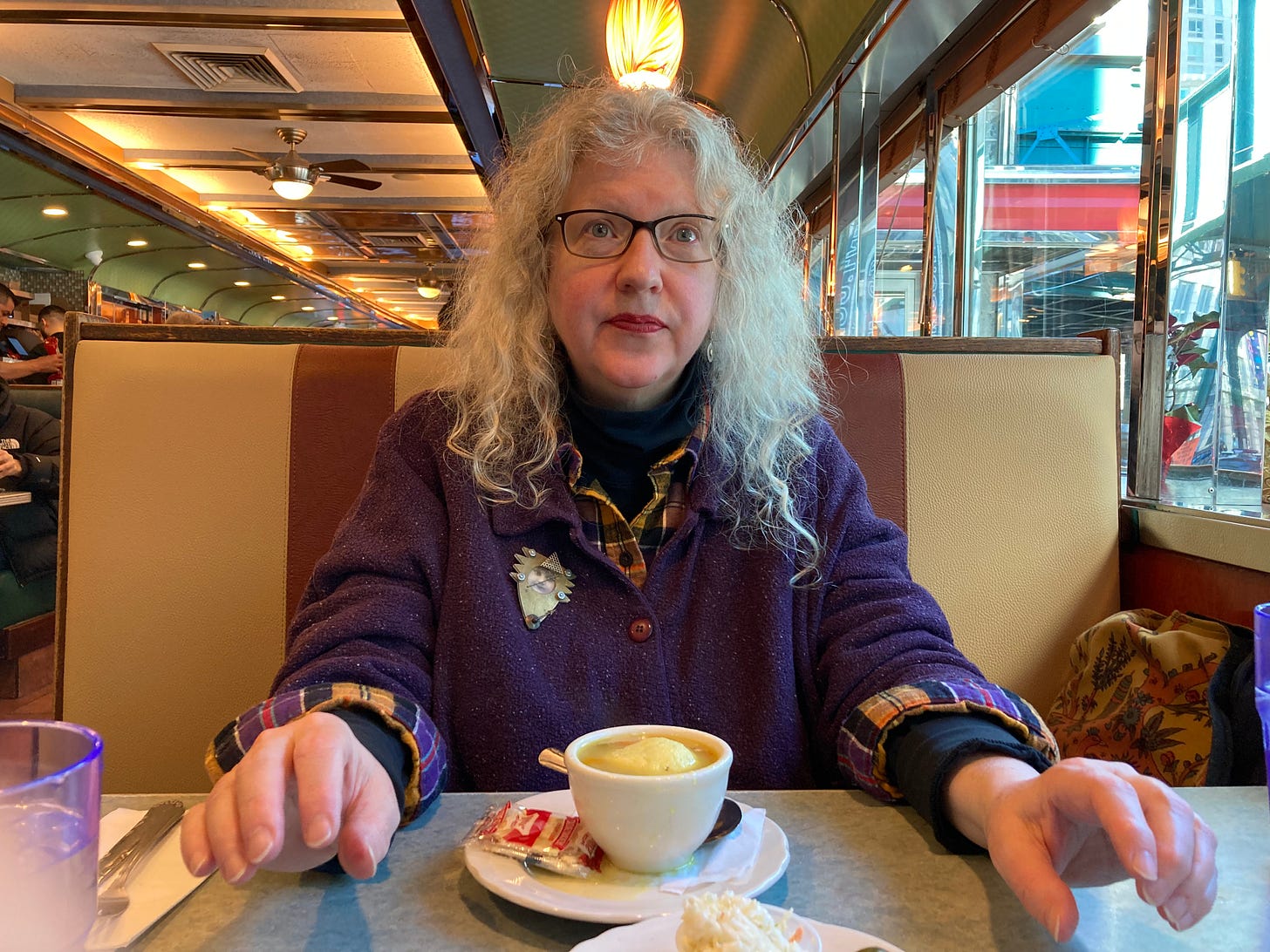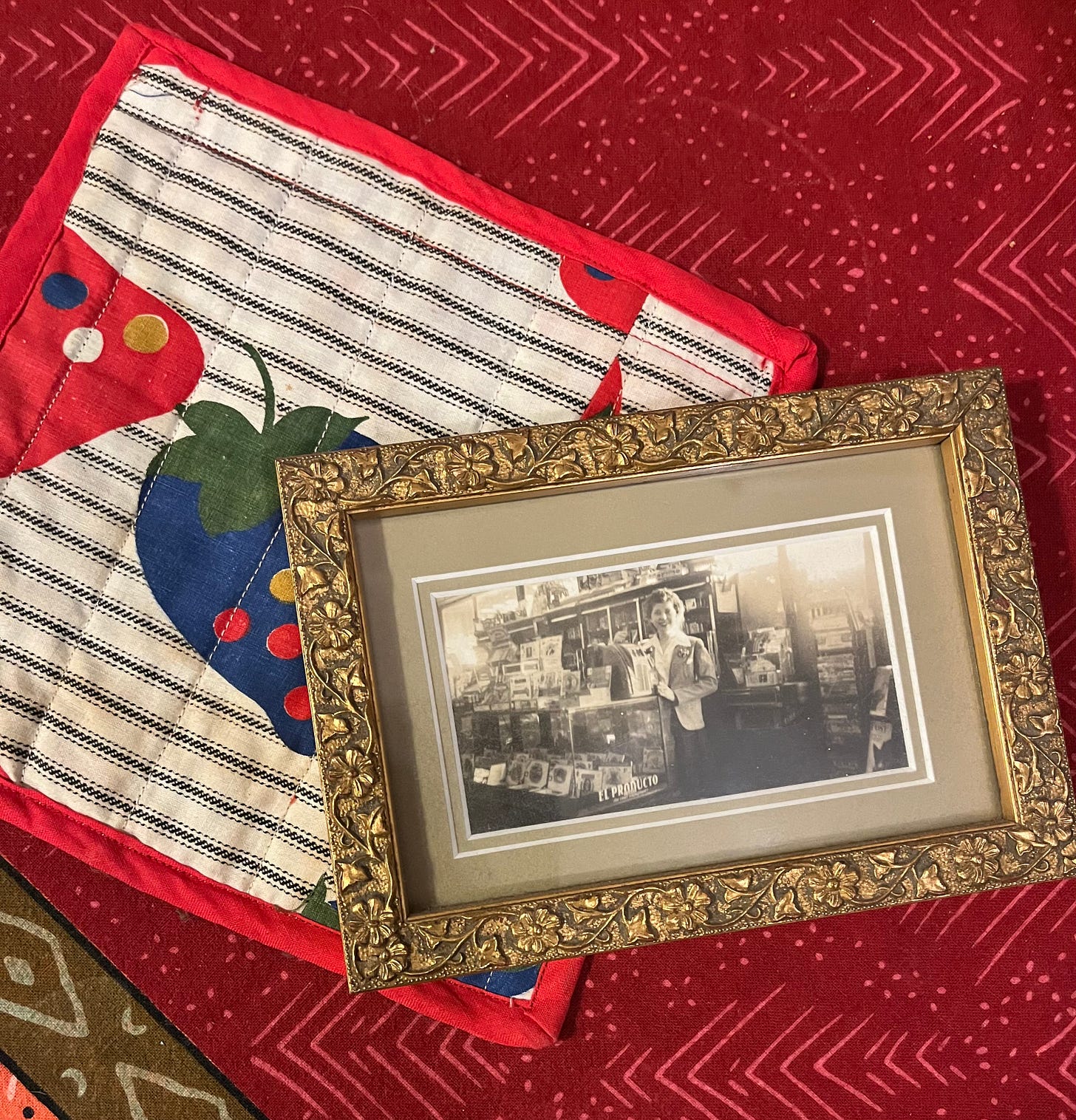Random talks with my dad, Bernie
Over Christmas I was sitting in the living room watching a bowl game with my dad, Bernie. All the O’Haras print out a sheet of the bowl game contenders, make our picks, and keep score. (Fun fact: I won this year—just picking schools I “liked.”) That evening, I don’t remember who was playing, but the winner had become obvious, so during the commercials, we’d flip the channel to see what was playing on TCM. Dad and I started watching the last part of I Remember Mama, where Irene Dunne’s brother is dying, and Barbara Bel Geddes writes her story, and Mama reveals her big secret, and I looked over and my dad is weeping, and I’m weeping, and then we see each other doing this.
I remember my mom (I tell my dad)—who had already gone up to bed this bowl evening—coming downstairs years ago to tell me, “Lisa, at eight o’clock on TCM, I Remember Mama is on. Now, watch it.” I had neglected to do it for years, sure that it would be super sentimental and make me cry, and I hate crying—or do I? Anyway, I watched it, I wept happy tears; and every time I watch it now, I start crying at the very beginning and weep, more or less all the way through. (The same is true of the 1939 Goodbye, Mr. Chips, which I watch any time I notice it’s on, crying right away.)
I tell my dad about this, as I say, as we dry our tears from I Remember Mama, all these movies that make me ball, how I still watch them knowing I’ll be crying all the way through them, and then Dad’s talking about movies like that for him too; and I look at him, because he and I have started crying just talking about these movies, and then we look at each other and we begin laughing so hard, I mean shoulder shaking, helpless laughter—the depth of emotion in us O’Haras is so huge, running the gamut from A to Q to Z and back to fast it makes your head hurt, but I gotta say, my heart is always lighter for these wild expressions of emotion, in a span of a few minutes at most.
And in that exchange up there you might better understand why my dad, Bernie, who is 90 now, is the parent I always had the deep talks with. Politics, religion, societal changes, boyfriends, school. I told you this story, how once we had a deep argument about homosexuality, which concept Bernie couldn’t get on board with or begin to understand, but I his college-age daughter felt compelled to push him on because being in the theater, I now had so many male friends who were gay. “What is your problem, Dad?” And he finally admitted, “I don’t like to picture those people having sex.” “Okay Dad,” I replied, thrusting my arm to point across the street, “Bob and Hazel Hunnicutt, Dad, you want to picture them having sex?” He quickly made an ick face. “Ew, ew, my God no.” I looked at him, “Dad, how many people do you really want to picture having sex?” He thought about it and couldn’t think of any. And scene.
Years later, my friend Richard and his partner (now husband) John were finally having a child via surrogate (and got twins!)—I shared this news with my folks on a Sunday morning phone call, since they’d known and loved Richard since our college days. My dad couldn’t understand it. “I got on board with the gay marriage thing,” he said, my mom recalling the time then-Mayor Gavin Newsome made the case on the Today show and my parents had no arguments, “but why do they want to bring kids into it?” They want to be parents, I explained. My dad’s voice softened, “Oh, oh. I understand that.” And I said, flatly, “I don’t.” Beat. “You don’t?” he said. Nope, I never wanted to be a parent. I have no idea what that feels like, that desire, though I’ve seen it often enough in other people. Like my parents. And…scene.
I’ve written about my mom a lot in recent blogs, probably too much or too personally for public enjoyment, but it’s what I’ve needed to write; publishing helps me not lose my memories. And while I’ve never had perfect relationships with either parent, I can’t help thinking about the ways in which all of us relate to our parents, if we are lucky enough to know parents who love us, who sacrifice for us, who rear us. This is about my dad.
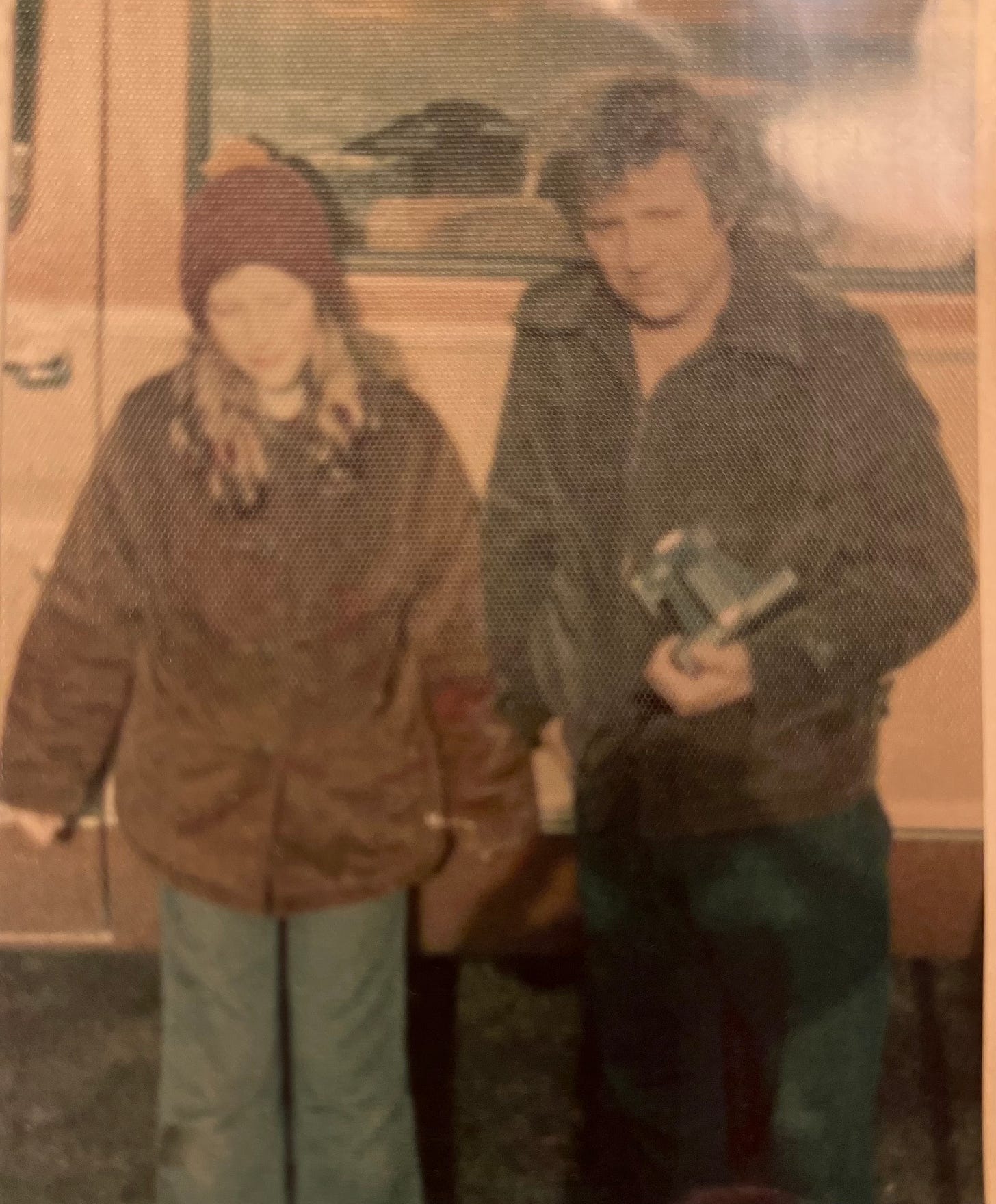
When I came home after my first year at Virginia Tech, I was sitting there in the living room, talking intently about all the learning I’d amassed in my three quarters of classes, 18 and 19 hours’ worth of courses each quarter, the shows I’d worked on in the theater department, my new friends. I don’t know what exact smart thing I’d said to trigger his move, but my dad got up and went into the kitchen. I followed him. I continued educating him as he pulled out a whole roasting chicken from the fridge and put it on the counter. “Clean it,” he said. I just stared at it. He looked hard at me, saying, “You still can’t clean a chicken, can you.” No sir, I can’t. That shut me up.
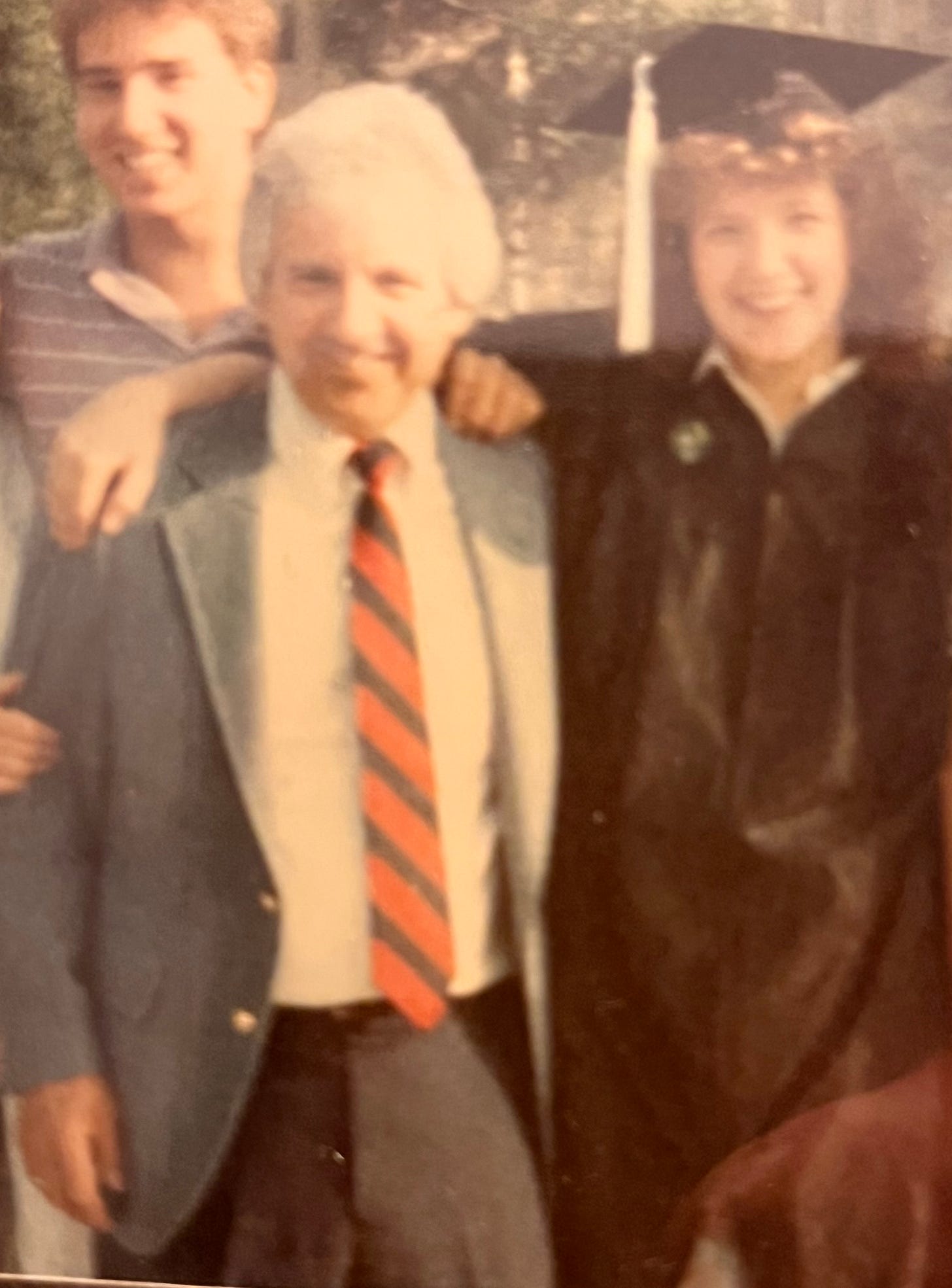
And I know I told you that story, what Bernie told me after my first serious breakup, with the guy I thought I would marry. I’d been quiet, depressed for months. My dad asked me if I wanted to come to Springfield Mall with him to pick up my mom’s Christmas present. I did. We didn’t speak the whole ride. When he pulled into the parking space, as I took off my seatbelt, he said, sharply, “I know you’re upset. But a boy like that, he’ll always have a harem. You didn’t lose nothin’.” Over time, that observation saved my heart. When I recalled that story to my dad recently, my mom said, “Did he tell you that?” And I said yes, and my dad nodded, and my mom said, “That’s good,” because I know she had been charmed by the boy too—and now she realized, I think for the first time, that Dad was absolutely right. (Note: said boy went on to live with no fewer than a half dozen women, possibly more, and enter into dozens and dozens of relationships in between; many of these women I met, including his wife; and it might interest you to know that the boy recently divorced her after nearly 20 years of marriage and four children, whom he raised while she worked—funny how all the women he leaves (I broke it off with him, for the record, because I just knew this couldn’t end well) have the same common fault: they get “angry” with him, “throw things,” and he “will not be yelled at” (how many times did I hear that and shut up; and I will not be shut up). All these breakups in an endless loop, as he repeated his habit of luring in attractive, smart, industrious, dynamic, multitalented, independent-minded women and then, as his gift, moving them into a ready-made box to try to contain them, limit them, redirect them for his pleasure, and then becoming disappointed when they’d “rebel.” You didn’t lose nothin’. You said it, Bernie.)
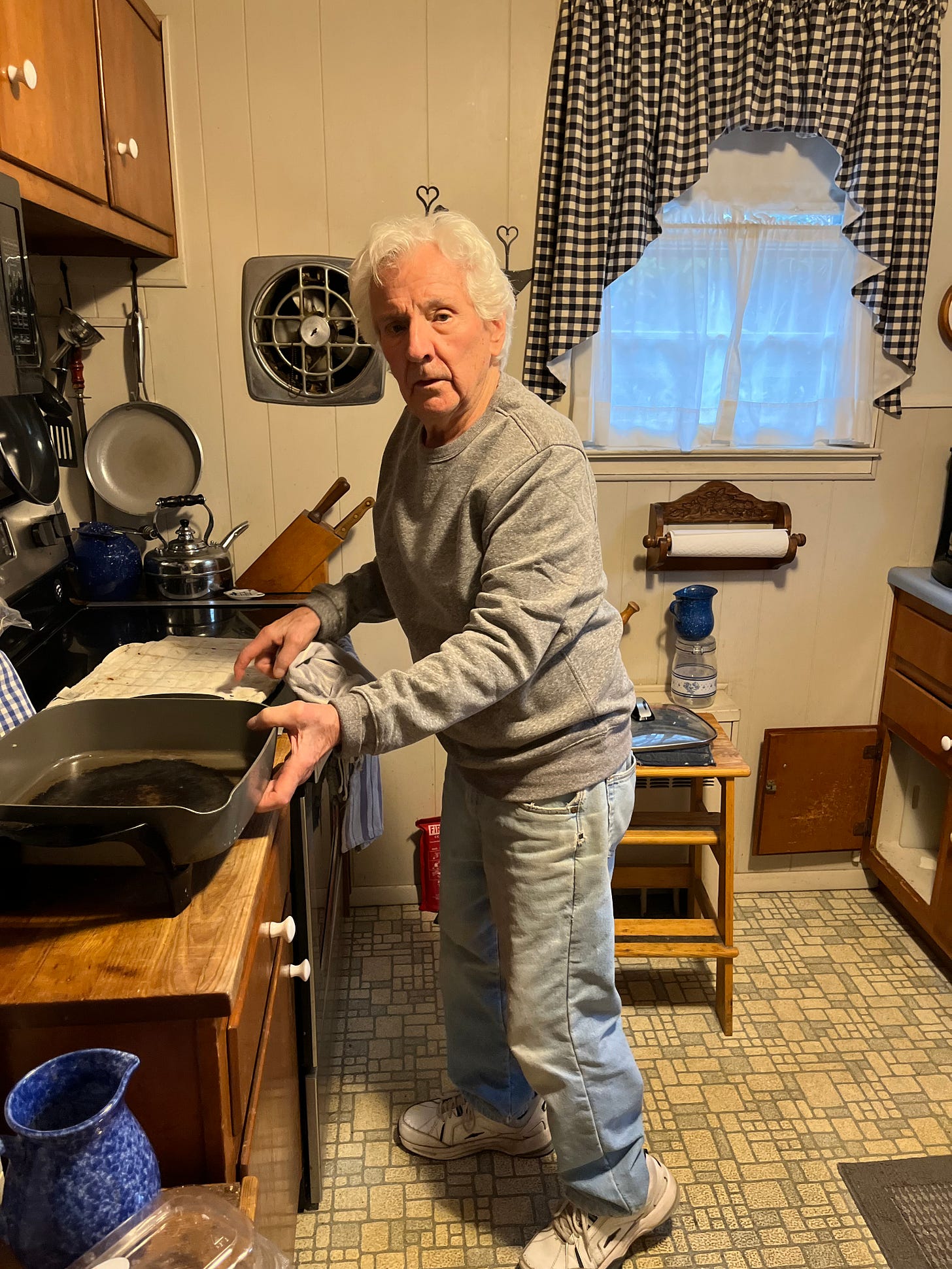
Sending love to all of you who could use parental advice, maybe, via parents or surrogates, to have good cry, enjoy a shoulder-shaking laugh, or hear the truth.
Love,
Miss O’
